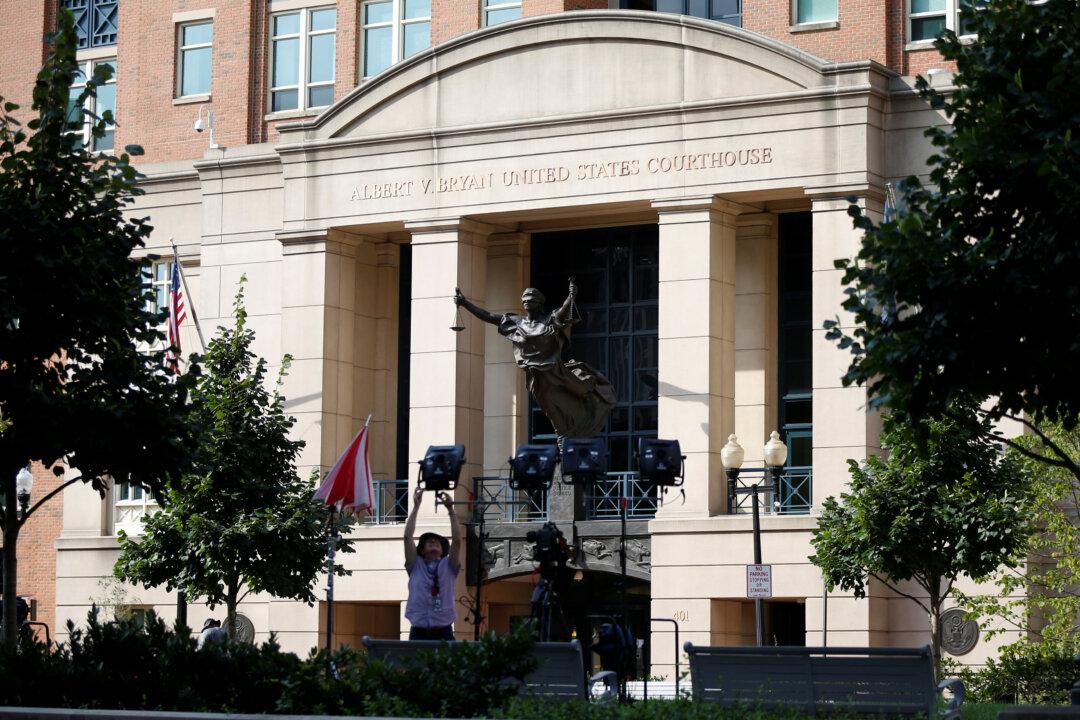ALEXANDRIA, Va.–A jury began deliberations in Virginia on Aug. 16 in the trial of Paul Manafort, a veteran political consultant who faces bank and tax fraud charges that could put him behind bars for years.
The six men and six women received final instructions from U.S. District Judge T.S. Ellis before retreating to a room in the federal courthouse in Alexandria, outside Washington, to weigh the 18 criminal counts brought against Manafort, 69, by special counsel Robert Mueller.





